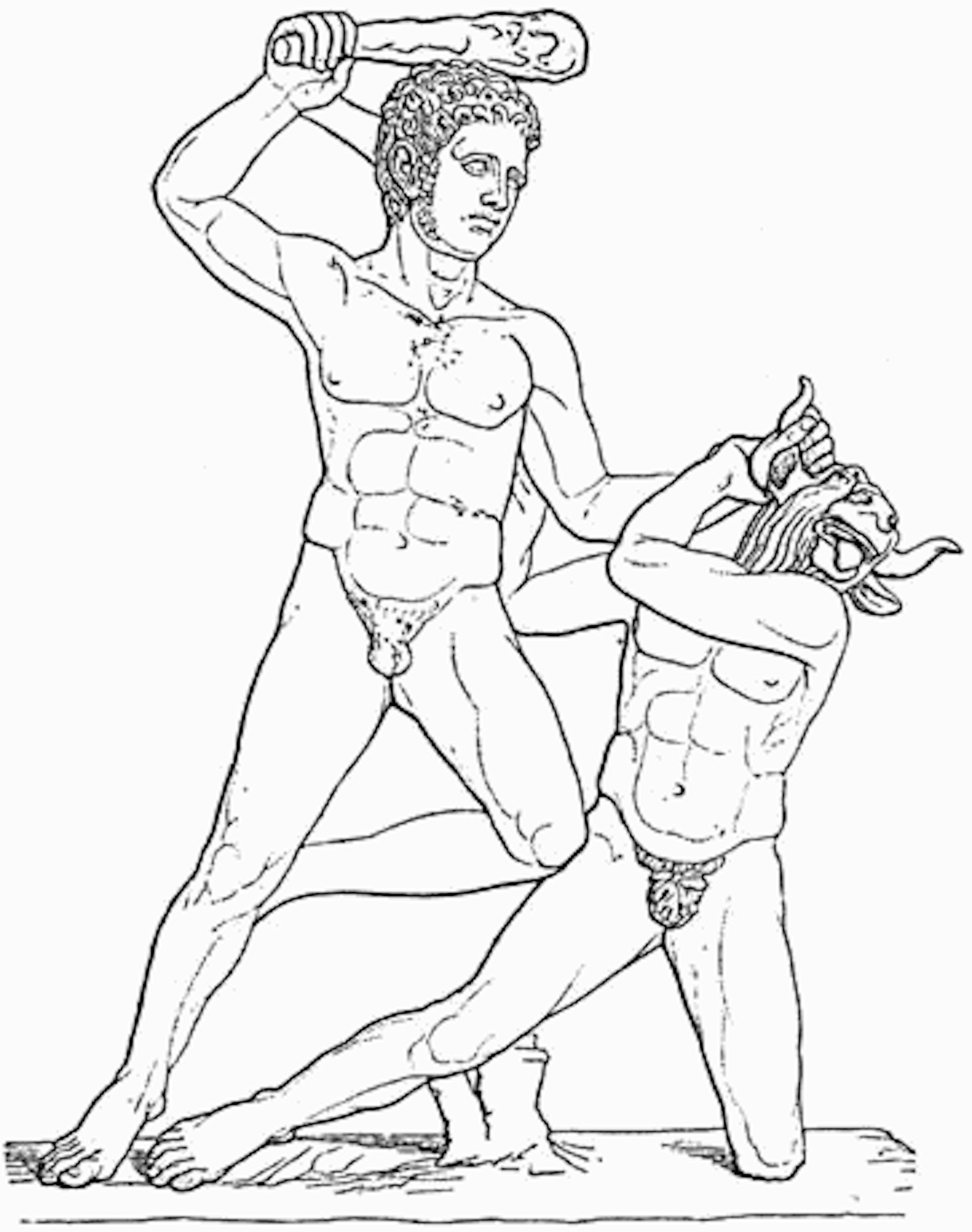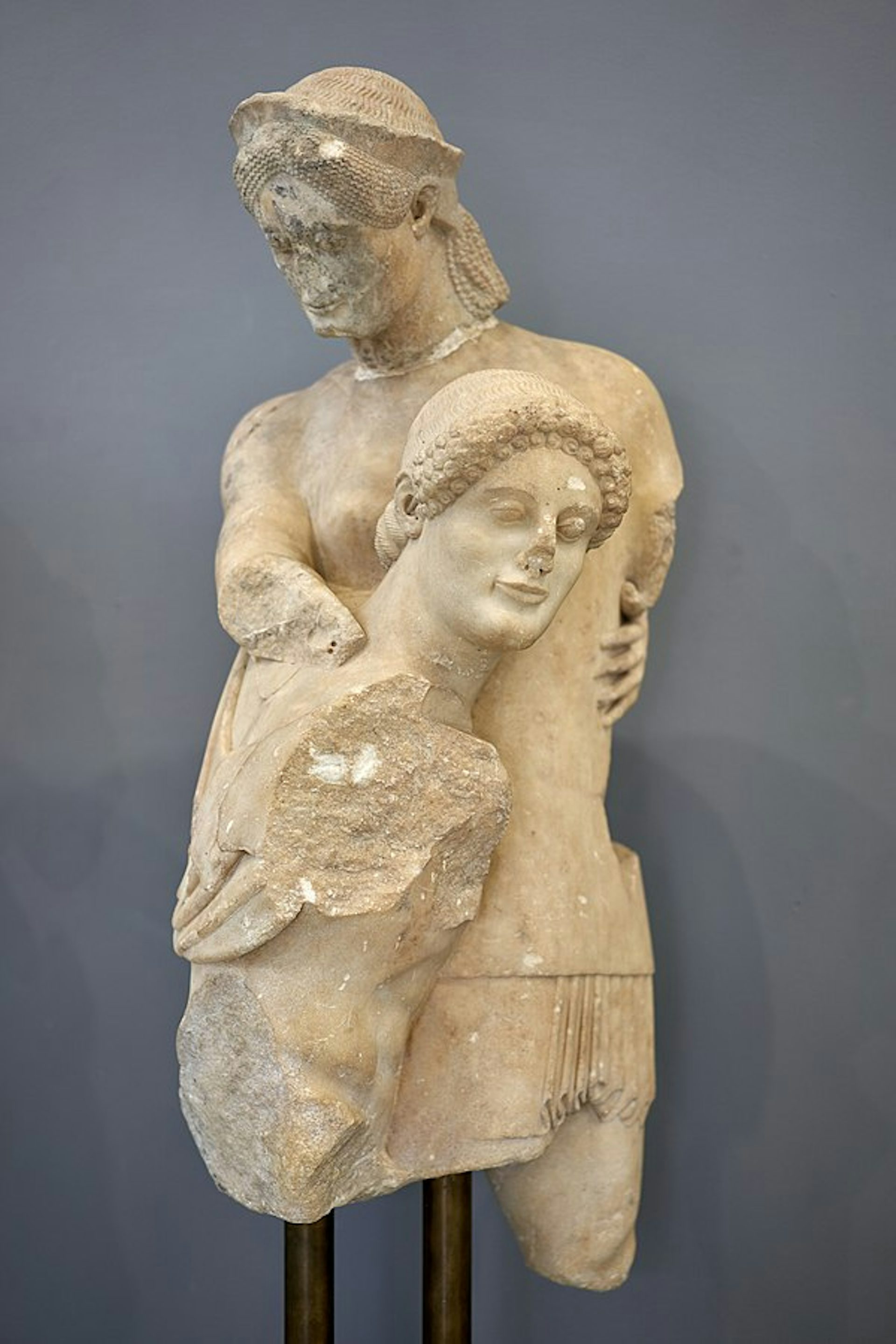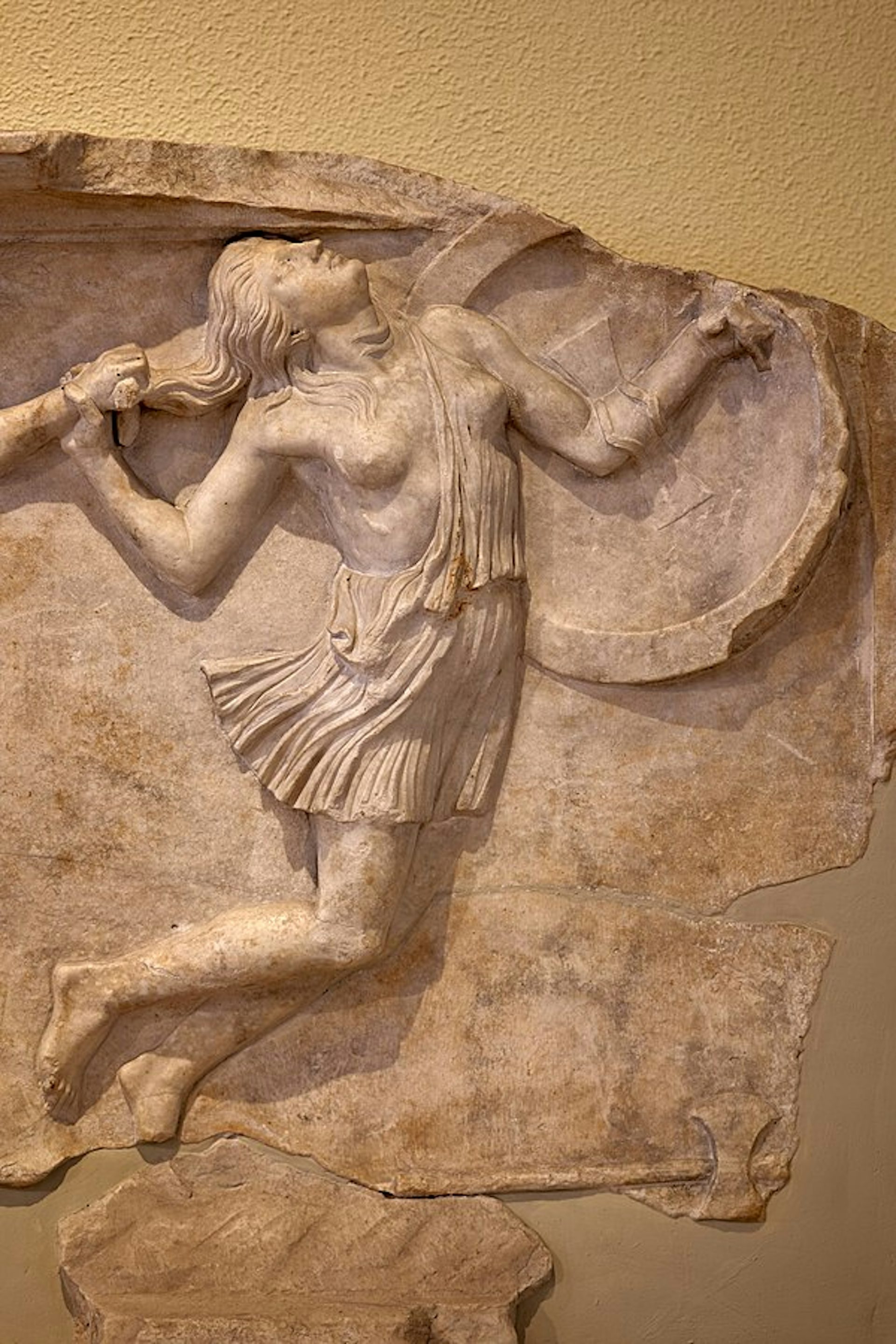Antiope (daughter of Ares)

Overview
Antiope, daughter of Ares, was a great warrior and an Amazon queen. She is best known for being carried off by the Athenian hero Theseus (though whether she went willingly or not varies by the tradition and source). The Amazons did not appreciate losing their queen: in response, they assembled a huge army, sailed across the sea, and invaded Athens to get Antiope back. The bloody war that broke out only ended when Antiope herself was killed.
Etymology
The etymology of the name “Antiope” is relatively straightforward. The first element is the Greek preposition or prefix anti, meaning “like” or “against,” and is found quite frequently in Greek names (for example, “Antipater,” “Antilochus,” etc.). The second element is seemingly derived from the Greek word ops, meaning “voice.”
Pronunciation
English
Greek
Antiope Ἀντιόπη Phonetic
IPA
[an-TIE-uh-pee] /ænˈtaɪəpi/
Alternate Names
In some sources, the Amazon queen carried off by Theseus was named not Antiope but rather Hippolyta,[1] Melanippe,[2] or Glauce.[3]
Family
Antiope’s parentage is rarely mentioned in surviving sources, but when it is, her father is named as Ares.[4] This suggests that Antiope’s mother would have been Otrere, Ares’ Amazon consort. But in other traditions, Antiope’s mother was Hippolyta, another Amazon queen, most famous for her role as one of Heracles’ foes.[5]
Family Tree

Illustration of Theseus killing the Minotaur from Myers Konversationslexikon (1888).
Wikimedia CommonsPublic DomainMythology
Theseus and the Attic War
The myth of Antiope begins with the hero Theseus. When Theseus arrived at the faraway land of the Amazons (somewhere in the neighborhood of the Black Sea), he fell in love with a beautiful Amazon queen, whom most sources called Antiope.[7]

5th century BCE statue of Theseus abducting Antiope. Archaeological Museum, Eretria, Greece.
George E. KoronaiosCC BY-SA 4.0As for what happened next, the details are fuzzy. Some ancient sources insisted that Theseus’ feelings were reciprocated and that Antiope willingly followed the hero back to Athens.[8] But other sources were more ambiguous, suggesting she was carried away by force.
In either case, the Amazons resolved to retrieve their queen. They gathered a large army of both Amazons and their allies, sailed across the sea, and attacked Theseus.
The Amazons devastated Attica (the region ruled by Theseus) before besieging Athens itself. The ensuing war—sometimes known as the “Attic War”—nearly destroyed Athens and ended only after Antiope was killed in combat. According to many authors (including Diodorus of Sicily, Plutarch, and Pausanias), Antiope fought at her husband Theseus’ side and was tragically killed by one of the Amazons she had once ruled over.[9] In the wake of her death, the Amazons made peace with Athens and returned home.[10]

Detail from a relief depicting a Greek warrior pursuing an Amazon and grabbing her by her hair. Archaeological Museum, Piraeus, Greece.
George E. KoronaiosCC BY-SA 4.0However, there were other versions of what happened between Antiope and Theseus. In one tradition, recounted in the lost epic the Theseid, Theseus soon decided to leave Antiope so he could marry the Cretan princess Phaedra instead. When Antiope found out, she called on the Amazons, who were still loyal to her, to avenge her. Theseus then recruited the help of his friend Heracles, who killed Antiope and defeated the Amazons.[11]
In another variation of this myth, Antiope decided to take matters into her own hands: while Theseus was celebrating his wedding to Phaedra, she crashed the feast with a few of her loyal Amazons. But Theseus and the Athenians locked them inside the hall and managed to kill them all.[12]
There were still other traditions in which Theseus was the one who killed Antiope. Some sources stated that Theseus slew her in battle (presumably in a version where Antiope fought with the Amazons, rather than with Theseus), while others stated obscurely that he killed her “because of an oracle of Apollo.”[13]
Hippolytus
Before she died, Antiope gave Theseus a son named Hippolytus (or Demophon, according to Pindar). This Hippolytus would grow up to be a devotee of the goddess Artemis, whom he honored by vowing to remain a virgin. Unfortunately, this brought him into conflict with Aphrodite, the goddess of love, who felt that Hippolytus was neglecting her worship by refusing to have sex.
Aphrodite punished Hippolytus by causing his stepmother Phaedra to fall in love with him. When Hippolytus did not respond to Pheadra’s advances, she convinced her husband (Hippolytus’ father, Theseus) that Hippolytus had tried to rape her. In a rage, Theseus called on the sea god Poseidon to kill Hippolytus. Though he eventually discovered that his wife was lying, it was too late: Poseidon had already answered Theseus’ prayer, and Hippolytus was dead. Theseus was thus responsible, directly or indirectly, for the death of both his Amazon wife and their son.[14]

Phaedra and Hippolytus by Jozef Geirnaert (1819). Bowes Museum, Barnard Castle, UK.
Wikimedia CommonsPublic DomainPop Culture
The two best-known modern adaptations of the myth of Theseus and Antiope are Mary Renault’s The Bull from the Sea (1962) and Steven Pressfield’s Last of the Amazons (2002). Renault calls Antiope by her alternate name, Hippolyta. Both Renault and Pressfield turn the myth into a doomed love story, with Theseus and Antiope (or Hippolyta) struggling against their respective societies for the sake of love.
Antiope also appears in DC’s Wonder Woman comics, where she is the sister of the Amazon queen Hippolyta and the aunt of Wonder Woman.